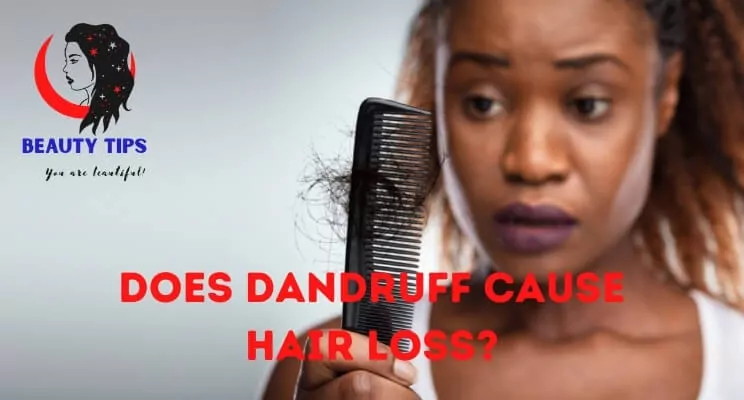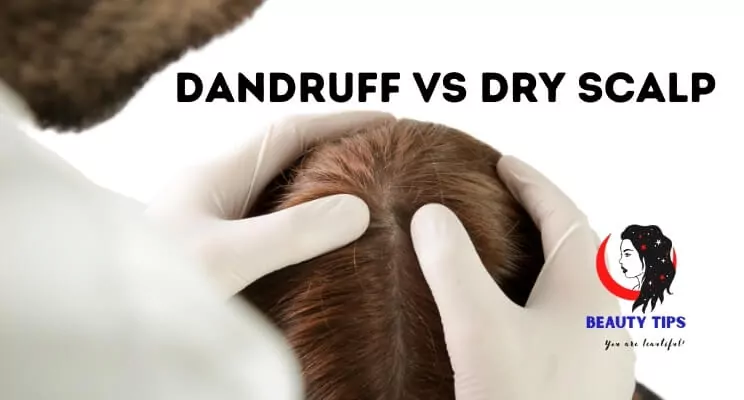Article Contents
Dandruff vs Dry Scalp
A dry scalp can cause dandruff, but the two conditions are different. Dandruff can cause visible flakes on hair and cloth, as well as scalp flaking. It occasionally happens by a fungal infection on the scalp. A dry scalp happens when the scalp cannot produce and retain enough moisture.
Many doctors are still baffled by dandruff and do not comprehend how a harmless fungus on one person’s head can result in severe dandruff on another. Any dandruff treatment comes with no guarantees.
It is impossible to forecast who will get dandruff or how bad it will be. A dry scalp and dandruff are both bothersome but not harmful. With at-home care, they typically go away.
If a person does not experience improvement after using a home remedy, they should consider the possibility that the issue may not be dandruff. A physician can definitively identify the root cause of a flaky scalp.
Understanding dandruff vs dry scalp may help select the appropriate treatment.
Dandruff: Symptoms and Causes
The scalp sheds dead skin cells just like the rest of the skin. When this process is accelerated, it causes dandruff. Dead skin cells turn into dandruff flakes.
Dandruff gets worse as fast the dead skin of the scalp sheds. The rate at which the skin sheds can be affected by some factors.
The American Academy of Dermatology says that researchers need to learn more about what causes dandruff. Here below are some potential causes of dandruff:
- Oils secreted by the scalp
- Fungal infections of the scalp
- Sensitivity of the scalp to substances, such as hair products, serums, gel etc.
Some dandruff may get worse because of these factors. For instance, individuals with fungal scalp infections may experience worse dandruff if they have oily or sensitive skin.
In 2016, a study found a close relationship between dandruff and the presence of certain bacteria on the scalp.
Malassezia is a benign fungus that lives on the scalp of the majority of people. However, this fungus causes flakes and irritation in dandruff sufferers. The way the fungus interacts with other things could be the cause of this irritation.
Dry scalp: Symptoms and Causes
When there is not enough oil in the scalp, the skin does not feel lubricated, resulting dry scalp.
Unlike other forms of dry skin, it can itch, flake, and irritate you. Since the oil helps condition the hair and scalp, without it, your scalp will get dry and itchy.
You can notice the shedding of flakes from your scalp if your scalp is dry. However, dry scalp flakes are typically smaller and whiter than true dandruff flakes.
Flakes of dandruff can be yellowish or appear oily and larger. Dry scalp and dandruff tend to come and go, but dandruff caused by a fungal infection is unlikely to improve without treatment. However, if you shampoo your hair less often, your dry scalp may get better.
The scalp can become irritated and itchy from either condition. People with either condition may scratch their scalp so frequently that it turns red or develops small sores when it gets severe.
A dry scalp is more common in people with dry skin. As a result, many of the factors that cause dry skin can also cause dry hair, such as:
- Frequent hair washing with a low-quality shampoo
- During winter, the skin needs more care to stay moisturized.
- Skin conditions, e.g., extreme skin dryness, eczema, and psoriasis
Difference between Dandruff and Dry Scalp (Dandruff vs Dry Scalp)
It can be difficult for most people to distinguish between dry scalp and dandruff, and it is possible to have both conditions. The following conditions are generally more likely to be dandruff:
- When you feel intense scalp itching, even the scalp does not feel dry
- If your scalp feels dry and irritating
- if the hair looks thick and greasy
When to see a doctor
You can treat dry scalp and dandruff at home. However, some conditions of the scalp may resemble dandruff.
For instance, scalp psoriasis is caused by an autoimmune disorder that causes redness, flaking, and itching. Seborrheic dermatitis, a severe form of dandruff, can cause severe, painful inflammation.
You should consult a dermatologist when you see a flaky scalp. Here below are some conditions where you need to seek doctor’s consultations:
- If your home treatments do not work
- If there are other symptoms you notice on your scalp, e.g., redness or sores
- If there are open and inflamed wounds on your scalp or face
Before treating dandruff, people who have chronic illnesses and autoimmune disorders should talk to their doctor. A poor immune system can increase the chances of worse scalp conditions and symptoms of dandruff.
Treatment Options for Dandruff and Dry Scalp (Dandruff vs Dry Scalp)
You can treat the majority of dandruff cases easily at home. People with dandruff should try to use an anti-dandruff shampoo regularly to wash their hair. This can treat minor fungal infections and many other underlying causes of dandruff.
Pyrithione is found in the majority of shampoos for dandruff, and there are numerous brands of anti-dandruff shampoos available online.
Coal tar shampoo is another option for dandruff treatment. However, because this shampoo may alter the color of light hair, people with blonde or gray hair may choose a different product.
Shampoo for dandruff may have a strong smell. After using dandruff shampoo, you can use your regular shampoo.
Tea tree oil shampoo is a good option for people who prefer natural remedies or don’t like the smell of shampoo for dandruff. Tea tree oil is effective against bacteria; it has antimicrobial properties.
A recent study revealed that dandruff could be effectively treated with a shampoo containing 5% tea tree oil without causing serious side effects. However, this claim is unsupported by recent research.
People with dandruff who cannot manage their condition at home should see a doctor. It can be helpful to determine whether dandruff is the cause of a bacterial or fungal infection. In many cases, prescription-strength treatments can help to get rid of dandruff.
Dandruff vs Dry Scalp and Its Prevention
Dandruff is not caused by poor hygiene, which is a myth. However, avoiding shampooing for extended periods may make dandruff appear more prominent.
It’sIt’s unclear if dandruff can be avoided because scientists need to know all the details about how it develops.
Dandruff is a condition that typically lasts longer and returns in most people. Although some individuals believe that altering one’sone’s lifestyle can alleviate symptoms, little research has been done on this subject.
Prevention for Dandruff
Even after successfully treating dandruff, people who have had dandruff in the past may occasionally experience dandruff flare-ups.
You may prevent dandruff-related hair loss by adopting the following strategies:
- You should consult a dermatologist or other healthcare experts for dandruff that does not respond to shampoo or other treatments.
- Consult a doctor if the hair comes out in clumps, which may indicate a different scalp or hair problem.
- Regularly shampoo the hair. Dandruff can get worse if you wash your hair less often. According to the American Academy of Dermatology, African Americans should wash their hair once a week, while Caucasians and Asians should wash their hair daily.
- You should carefully follow the directions mentioned on the bottle of dandruff shampoo. Some shampoos may need to be applied to your scalp for several minutes for more effective results.
- You should avoid massaging or scratching the scalp and aggressively brushing or twisting the hair. If the itching is unbearable, consult a doctor about taking medication to alleviate it.
- You should avoid tight hairstyles. Tight hairstyles may harm the hair follicles and scalp, resulting in slowing down hair growth. It may also break the hair.
- Do not ignore and delay dandruff treatment. At the first sign of dandruff, use a dandruff shampoo. See a doctor if your symptoms don’t get better within a week or two.
Dandruff shampoo may dry out or dull the hair of some people. Damaged, dry hair may break more easily and fall out. After treating dandruff, apply a conditioner of high quality to restore hair quality.
You can try alternative good, quality dandruff shampoo if you are not getting good results.
Prevention for Dry Scalp
You can prevent dry scalp by following these below-mentioned guidelines:
- You should use less irritating shampoos to keep your scalp healthy
- Moisturizing shampoo is suitable for your scalp
- Try to avoid harsh shampoo that may make your scalp dry and use shampoo less frequently
- Try to use a good quality humidifier to keep the scalp from getting dry
- It is recommended to drink plenty of water to keep your body and skin hydrated
Does Dandruff Cause Hair Loss

Everyone who suffers from dandruff want to know the answer of the question: does dandruff cause hair loss?
According to dermatologists, dandruff is typically caused by Seborrheic dermatitis. Malassezia, a type of yeast, typically causes this inflammatory skin disorder.
Dandruff can flare with stress, environmental changes, and medical problems. Over time, the inflammation may cause damage to hair follicles, which may cause premature hair transition from the growth phase into the telogen. In the telogen phase, the hair follicles rest and fall out.
You should act promptly to treat dandruff to avoid such conditions. If treatment does not work, the hair loss may be caused by something else. Consult a hair care expert or dermatologist to get the right solution.
Other Possible Causes of Hair Loss
A variety of factors, including dandruff, can cause hair loss. Even if a person has dandruff, there may be something else going on that may cause hair loss.
According to an article published in the year 2017 by the American Family Physician with the title “Hair Loss: Common Causes and Treatments,” the followings are the most typical causes of hair loss:
- Cicatricial alopecia: This form of permanent hair loss, also known as scarring alopecia, causes inflammation on the scalp. Scarring, as a result, damages the hair follicles and prevents new growth.
- Anagen effluvium: This hair loss typically occurs following medical treatments that stop the hair from growing, and it is most common in people undergoing chemotherapy.
- Androgenetic alopecia: This is the most common cause of hair loss in men and women and is more commonly referred to as male or female pattern baldness.
- Tinea capitis: This fungal infection can cause hair loss and is sometimes confused and mistaken with dandruff.
- Telogen effluvium: This hair loss causes many follicles to enter telogen at once, which is the resting stage of hair growth when no hair grows. This kind of hair loss may cause by stress, medication, or other medical conditions.
- Alopecia areata: Although it is treatable, this autoimmune condition causes the body to attack hair follicles.
The Take Away
In this above article, we are trying to cover up all the information related to dandruff vs dry scalp. People who are often get confused the difference between dandruff and dry scalp, most probably clear their concept reading this dandruff vs dry scalp article.
People who are suffering from dandruff often experience hair loss, so it is important to have clear concept and to know the answer of the question: does dandruff cause hair loss ?


